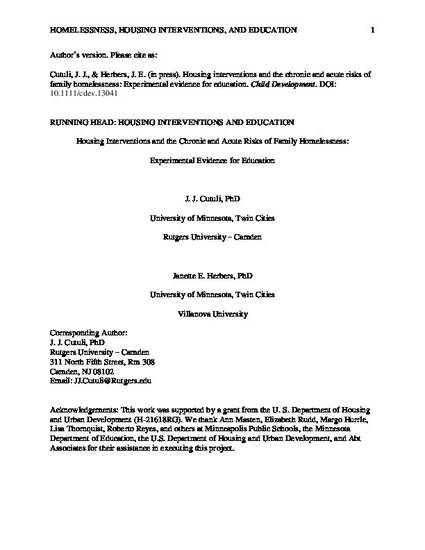
Article
Housing Interventions and the Chronic and Acute Risks of Family Homelessness: Experimental Evidence for Education
Child Development
(2018)
Abstract
This study considers risk associated with family homelessness for school functioning and experimental evidence on the effects of different housing interventions over time. Students in homeless families (N = 172; mean age: 7.31; SD: 4.15) were randomized to housing interventions that focus on acute risks (community-based rapid rehousing), chronic risks (permanent subsidy), or usual care. A matched group of low-income, housed students served as an additional reference for effects on attendance, school mobility, and reading and math achievement across four years. Findings partially support the chronic risk hypothesis that family homelessness interferes with achievement through its relation to deep poverty. Children randomly assigned to usual care perform as well or better than children assigned to housing interventions in this municipality.
Keywords
- Homelessness,
- Education,
- Housing interventions,
- Family Options Study,
- Family Homelessness
Disciplines
Publication Date
2018
Citation Information
Cutuli, J. J., & Herbers, J. E. (in press). Housing interventions and the chronic and acute risks of family homelessness: Experimental evidence for education. Child Development. DOI: 10.1111/cdev.13041
